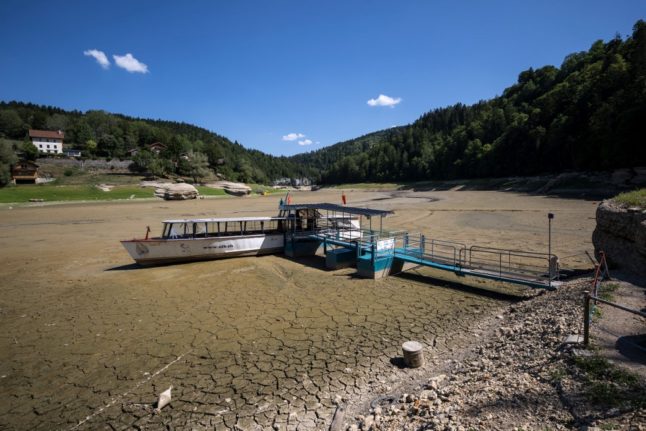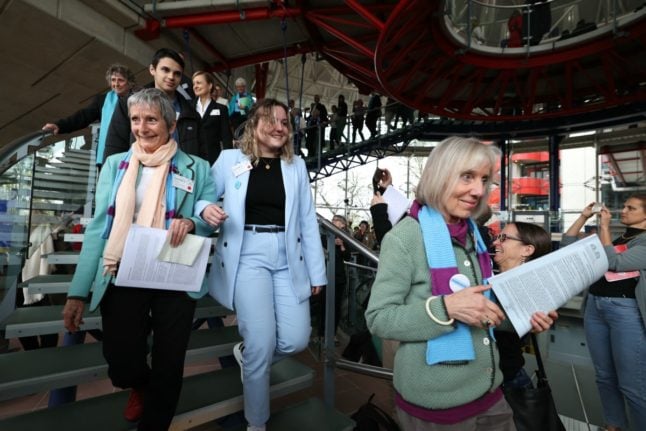Some of Switzerland’s best-known lakes are at their lowest level ever for August after a dry year so far in 2022, the environment ministry said on Wednesday.
At the same time, discharge levels on the Rhine, one of Europe’s major rivers which starts in the Swiss Alps, have never been so low in August since records began.
“There is a low water situation in Switzerland, especially on the central plateau and in the southern part of Ticino,” the country’s southernmost canton, said Michele Oberhansli, from the Federal Office for the Environment’s hydrology division.
READ ALSO: Water flown in by helicopter: How Switzerland has been hit by drought
“The reason for the existing situation is a precipitation deficit in the whole year of 2022, which affects the whole of Switzerland, as well as many other European countries,” she told AFP.
Soil moisture is down across the country and drought is affecting forests and agriculture, she said.
Lakes Constance, Lucerne, Lugano and Walen “are currently recording water levels that have never been so low in an August month since measurements began”, said Oberhansli.
Meanwhile Lakes Zug and Maggiore “continue to show values well below average”.
The shores of Lake Maggiore mark the lowest point in Switzerland, normally at 193 metres above sea level.
READ ALSO: MAP: The Swiss regions in danger of wildfires and the measures in place to avoid them
Except the lakes in the Jura region in the northwest and Lake Thun, the levels of all the other larger Swiss lakes are also below the long-term average.
Rivers down, glaciers melting
Meanwhile many Swiss rivers are recording readings that only occur once every two to 20 years.
“Discharge values on the Reuss and Rhine have never been so low since measurements began in August,” said Oberhansli.
The hydrologist said rain over the coming days should “slightly alleviate” the low water and drought levels, but would “not yet be sufficient to ease the overall situation”.
Following a dry winter, the summer heatwaves hitting Europe have been catastrophic for Switzerland’s Alpine glaciers, which have been melting at an accelerated rate.
READ ALSO: IN PICTURES: Runners take on Swiss glacier race despite melt
A layer of ice — 15 metres thick in 2012 — has covered the Tsanfleuron Pass between two glaciers since at least the Roman era.
But most of it has gone and the ice on the pass will have melted away completely by the end of September, a ski resort said last week.



 Please whitelist us to continue reading.
Please whitelist us to continue reading.
Member comments